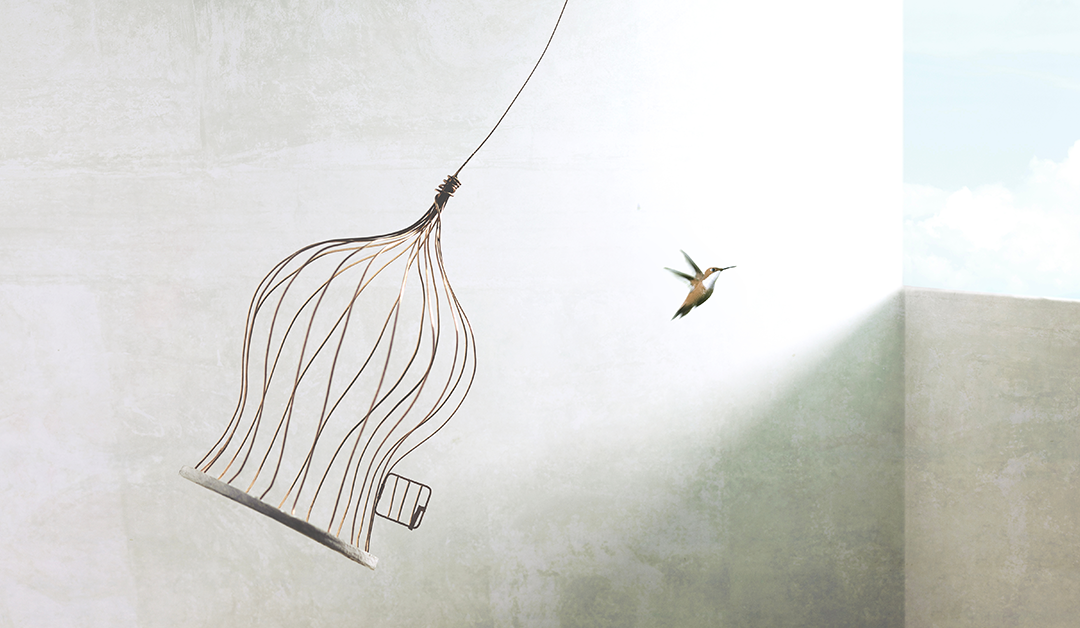Contributed by Natalie Haglund, consultant to CAIRE Inc.~
After I was diagnosed with an interstitial lung disease (ILD), life changed. One big adjustment for me was just getting through the day doing the usual activities most people do without batting an eyelash. I work full time and for me it starts right away in the morning with tasks that many folks typically take for granted. Showering, dressing, styling hair, etc., and continues from there.
Over the past eight years, the ease I have been able to get through a day has varied, and up until recently I had been doing fairly well. I’m currently experiencing a significant exacerbation of my disease. What a big reminder to slow myself down, break tasks down into steps, and tell myself it’s okay to not be able to keep up myself as my body needs the break. Many people with chronic lung disease go through this as well. Here are some ways I get myself through a tougher day.
When my lungs are working “well”, in the mornings I’m able to wake up, have coffee, shower, get dressed and finish getting ready for the rest of the day. When I’m going through an exacerbation of my disease or getting through a respiratory infection/illness, I alter my plan. Otherwise, I overexert myself, become more short of breath, and can get myself into a little breathing trouble.
My alternate plan consists of bathing or showering in the evening, and I take my time. I have a big towel that I can just wrap up in and let it absorb water instead of vigorously drying off. Some folks will invest in a large terry cloth bathrobe for this purpose. Then in the morning all I have to do is freshen up a bit. Face, teeth, comb hair, etc. I sit down when I get dressed. This makes a difference, especially when putting on socks, pants, and shoes. If I’m going out and about for the day or to work, I try to get anything that I may need to bring along with me ready the evening before. This reduces rushing around trying to gather items in the morning.
Household chores definitely become more of a chore. I break them down into smaller tasks. I can no longer do a full houseclean in one day like I used to. I think ahead to what needs to be done and do certain tasks on certain days, and certain tasks I don’t do on the same day. For example, I’m not going to do laundry and vacuum on the same day. I have a flight of stairs to contend with when I do laundry. Vacuuming uses a lot of upper body muscles. Both chores increase my body’s demand for oxygen greatly. So, I break these tasks up even more. For example, when my daughter was a teenager and lived at home, we split the laundry up. I would carry it downstairs and put it in the washer. Sometimes I’d do the washer to dryer transfer, and sometimes she would. My daughter would then fold the dry clothes and bring them up the stairs. Now that she has moved out of the nest, I’m on my own. Smaller loads spaced throughout the week is my typical approach.
Going out and getting errands done can feel overwhelming at times. Those I plan out ahead of time, and space them throughout the week. I try to group smaller errands together and leave the bigger errands as standalone events. Groceries can be a big chore. When I do go, depending on what I need determines where I go and how I get the items I need. There is one big box store I utilize their online ordering and drive-up pick-up service. This is great, especially for bulky and/or heavy items. My two favorite grocery stores are relatively small, and I know my way around so I can navigate them conservatively. Grocery carts are handy for putting an oxygen concentrator or tank in too! If I’m really exhausted and struggling with my lung disease, I have a network of family and friends that help me when needed. They check in and ask if I need anything from the store, post office, etc. And of course, we also have the World Wide Web where just about anything under the sun can be ordered and delivered to our doorsteps.
Staying active and independent while living with a chronic lung disease is important to me, and I suspect important others as well. We do have to improvise the way we do things at times. It can be a difficult adjustment. My piece of advice is don’t focus on what you used to be able to do, focus on what you can do now. Be creative in how you tackle your tasks and celebrate your accomplishments!
LEARN MORE: Conserving Energy and Managing Your Daily Activities | American Lung Association
Natalie Haglund, 50, diagnosed with Idiopathic NSIP (a type of interstitial lung disease), lives in northern Minnesota where she works as a Licensed Practical Nurse (LPN) in the operating room. She enjoys photography, hiking, concerts, crafty projects, and time with her 23-year-old daughter, friends and family.
If you have been prescribed oxygen therapy, learn more about CAIRE by visiting www.caireinc.com/patients or by calling 1-800-482-2473 to talk to an oxygen advisor.
The contents of this blog post are not intended to substitute for professional medical advice. Please consult your physician for personalized medical advice. When using any oxygen therapy device please consult the applicable product instructions for use for product indications, contraindications, warnings, precautions, and detailed safety information.

